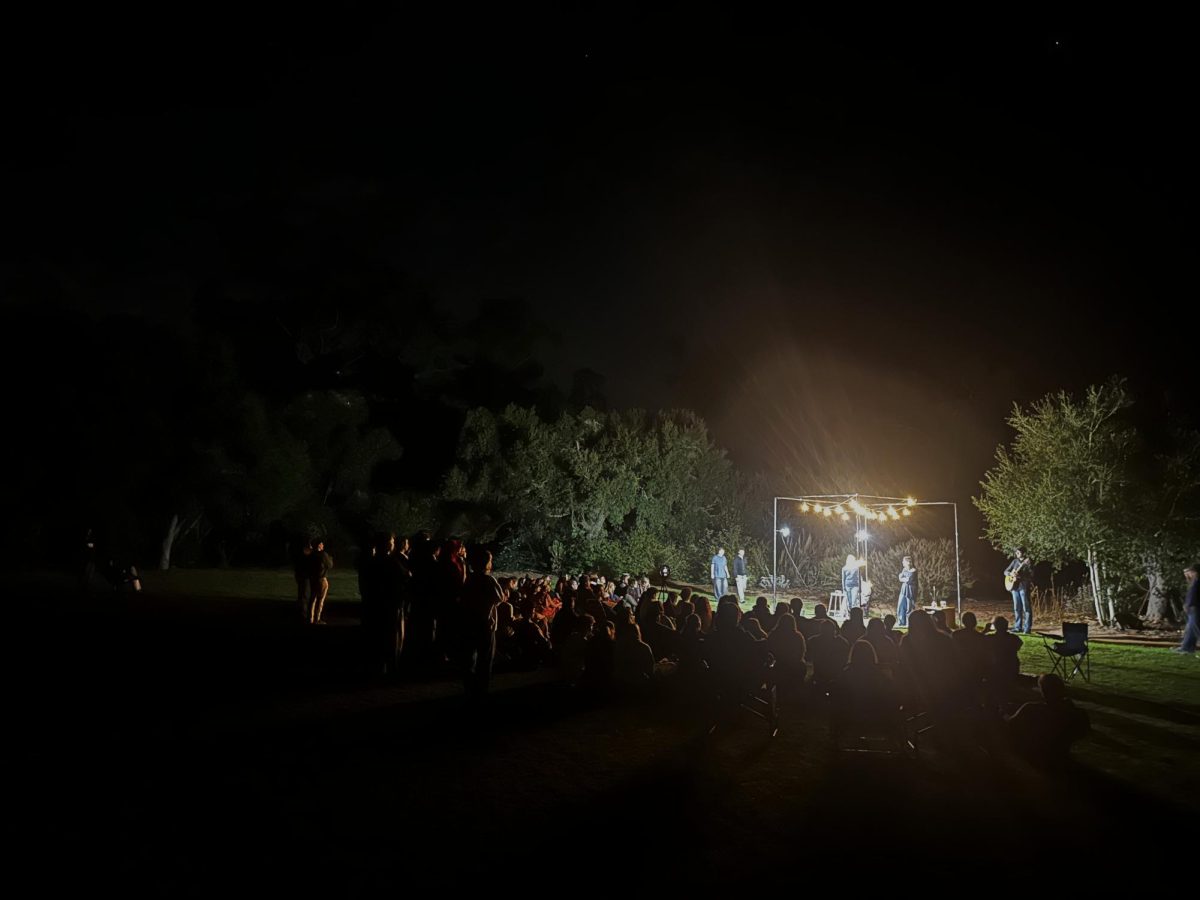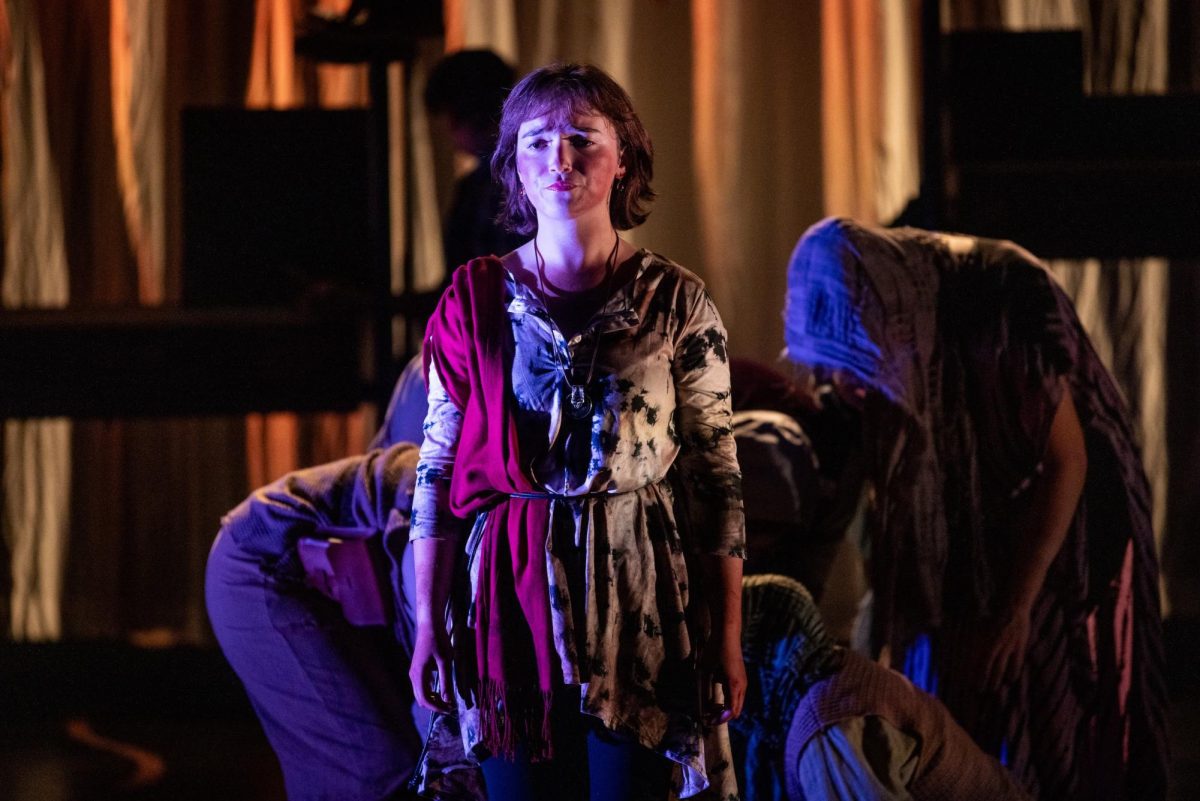The Kiln Theatre is tucked away in a northwesterly corner of London between a pharmacy and a Lebanese restaurant. There lies a masjid one block north of the theatre and, two blocks south, a church. Across the street, a new Greek grill house has opened up. Standing outside the Kiln Theatre, a brief glance at one’s surroundings will reveal that this is no ordinary London neighborhood. There are exotic fruit stands piled high with pineapples and persimmons, restaurants from every conceivable country and shop front signs more often in Arabic than English. These let the American student know he is submerged in cultural intricacies he may never be able to pick apart. But inside the Kiln Theatre, a brand-new play called “Mlima’s Tale” will help him to understand.
“Mlima’s Tale” is a true story scripted by Lynn Nottage and directed by Miranda Cromwell, that opens with Mlima’s final words. These are delivered in a raw, intense monologue where we realize he is an elephant, among the last of Kenya’s ‘big tuskers.’ The scene concludes with Mlima’s slow death at the hands of the poachers. For the remainder of the play, we follow the export of Mlima’s prized tusks, an illegal yet high-profile transaction that spans continents. It is revealed that corruption runs deep in the ivory trade, which in this case is coordinated by Kenya’s police commissioner, and a Chinese diplomat is the buyer. These two-faced characters are also responsible for investigating Mlima’s death, a fact which renders futile any idea of justice for Mlima.
The twist? Mlima’s spirit follows the ivory across the world. Covered in white chalk, he brushes against the poachers, sellers, traffickers and buyers and signs them all with guilt and condemnation in the form of a white mark. Sometimes, Mlima personifies his own tusks, being manhandled by characters admiring the ivory’s beauty. In the final scene, he has been ‘sculpted’ by the ivory carver, patterns swirled into the white chalk of his torso. The mise-en-scene is always stellar, with impressive lighting and explosive sound design complementing the experimental use of curtains. “Mlima’s Tale” moves along briskly, propelled by fantastically accented dialogue and goes out with a bang (seriously, the flash of light almost blinded me) at the 90-minute mark.
The Kiln Theatre in Kilburn, London, is the perfect venue for the UK premiere of “Mlima’s Tale.” Here, the diversity of the cast is a reflection of the outside world. The problem of natural resource extortion is never far away from residents of Kilburn. It lives in their hearts and minds because it plagues the nations many call ‘home.’ Kilburn is a space where people can and should think about issues such as the ivory trade, which (as the play reveals) is not an African problem but a global one. Before “Mlima’s Tale,” I had never seen these issues addressed onstage with such finesse and precision. The Kiln Theatre, however, off the beaten path it may seem, is indeed a force to be reckoned with.





